Rabbet / Rebate Cutter
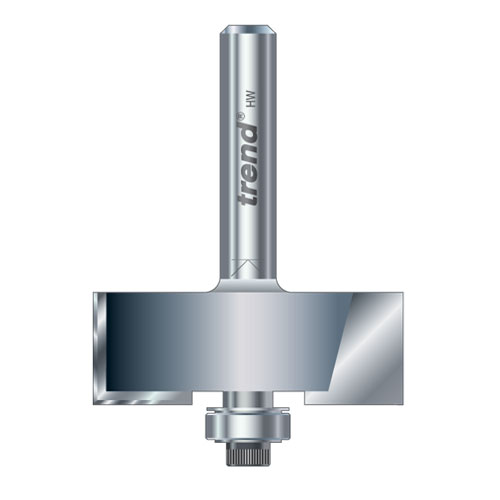

A cutter for forming a recess on material, normally bearing guided.
Radial Arm Routing
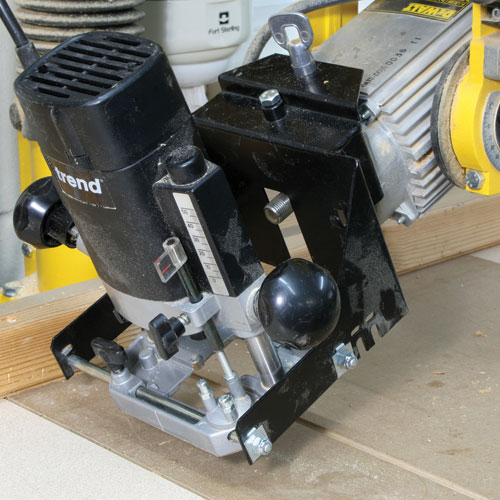

Using a special bracket to attach the router to a radial arm saw to effectively form an overhead stand.
Radial Relief
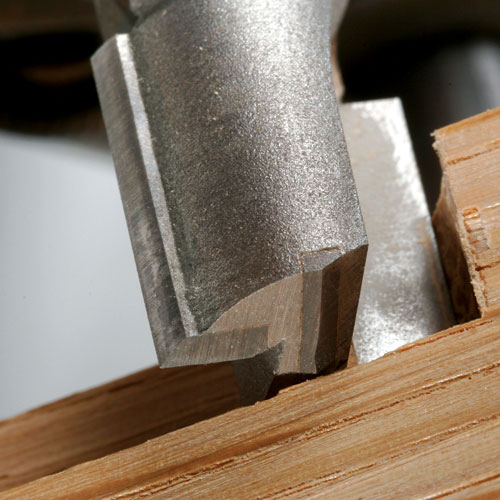

The amount of clearance behind the cutting edge of a cutter that prevents friction between the bit and the timber surface.
Radius
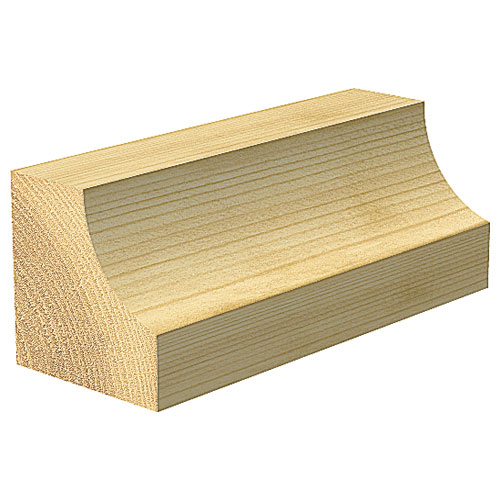

Radius of a circle (half the diameter). Radius cutters produce part or half circular concave profiles.
Rail
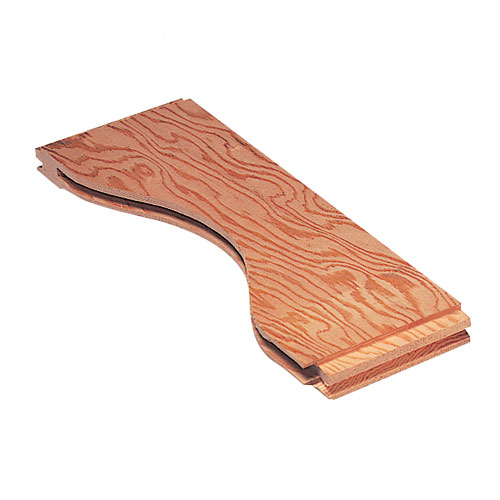

The horizontal member of a door, table carcass, or a chair frame.
Rate of Feed
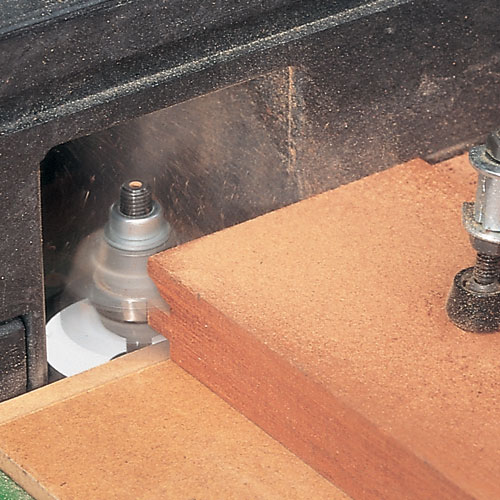

The speed at which the cutter travels across the wood, either by feeding the router into the wood, or feeding the wood into the cutter.
Re-honed
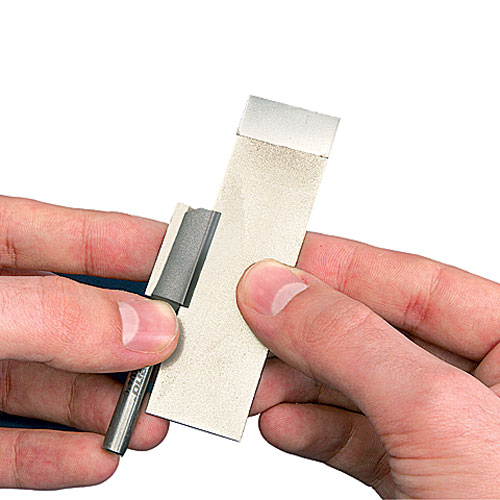

Rubbed with a sharpening stone to restore the cutting edge.
Replaceable Tips
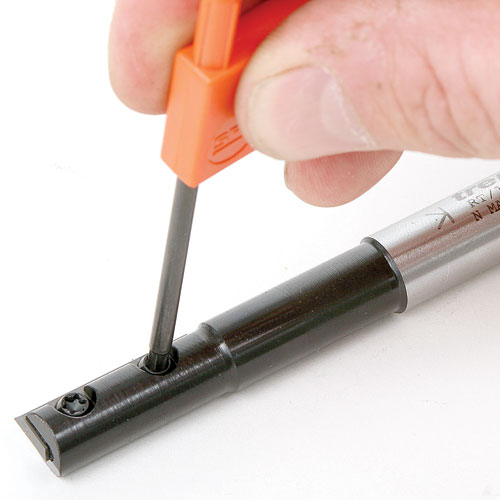

TCT cutting blades held on to a cutter with locking screws so that they can be changed when blunt.
Riser
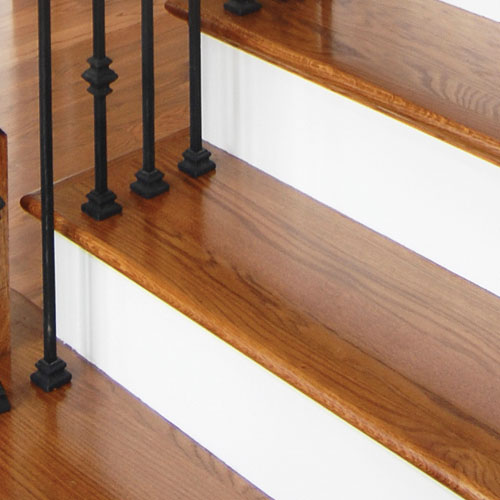

The vertical board at the front of each step or tread in a staircase.
Rosette
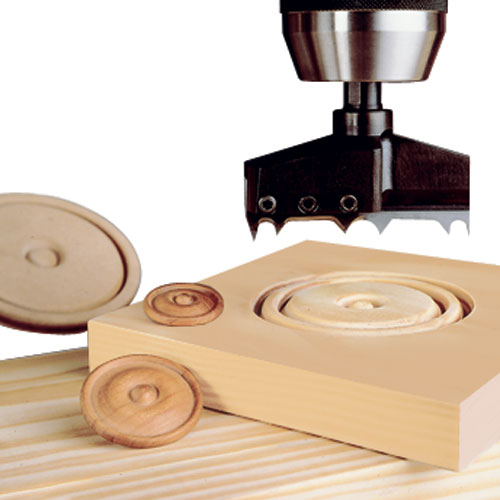

A circular shaped decorative moulding often used at the corner joints of fireplaces and in cabinet making. Best produced using a purpose-made drilling tool Fixed in a pillar drill.
Roughing Out
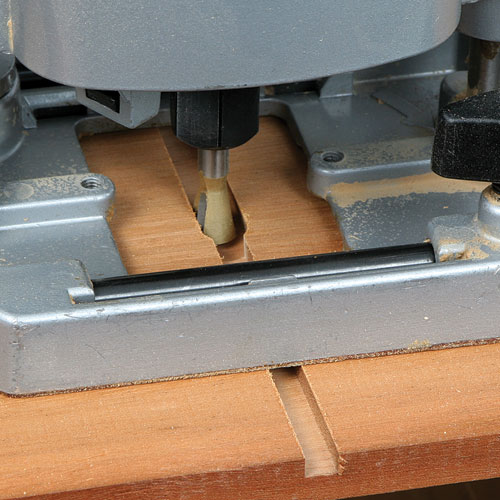

Quickly removing the bulk of the waste prior to the finishing cuts. Here a straight cutter is used to remove the bulk of the material prior to making a single pass with a dovetail cutter for a dovetailed housing joint.
Round-over Cutter
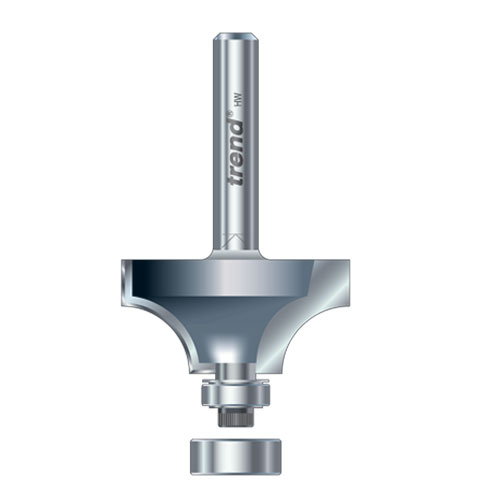

One of the several round forming cutters which convert square edges, ends and corners of a board to a convex radius.
Router Table
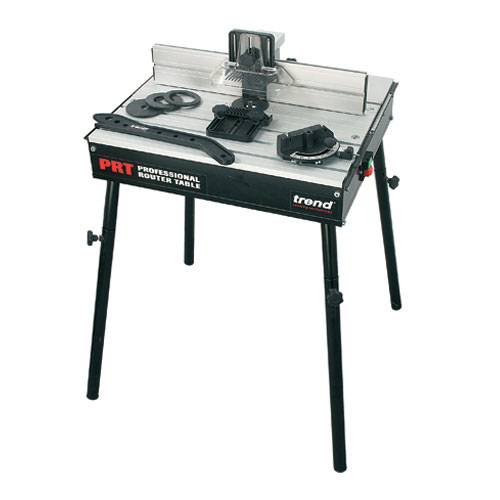

Any routing system where the router is mounted in a Fixed position and the operator does not manually handle the router. Often provides a safe and accurate means of moulding or profiling workpieces.
Sacrificial Support Strip
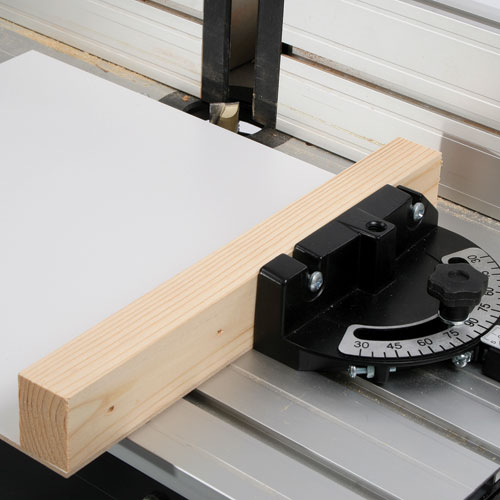

A waste batten clamped onto the work that is cut into to prevent break-out at the end of a cut.
Sacrificial Work Pad
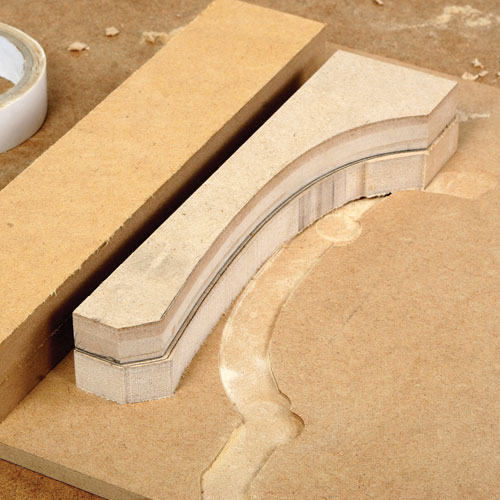

A waste board placed under the work.
Scalloped
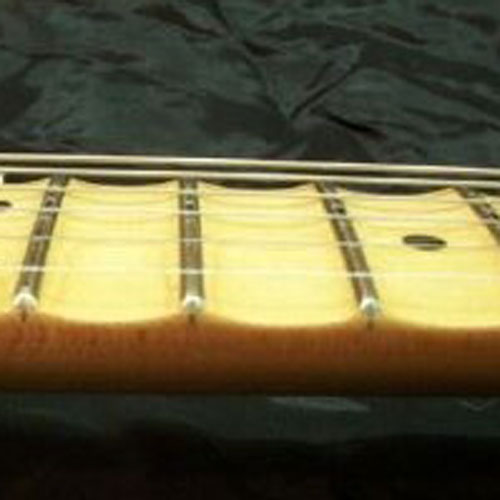

Cut-outs made in a series of regularly spaced circular scoops.
Self-guiding Cutter
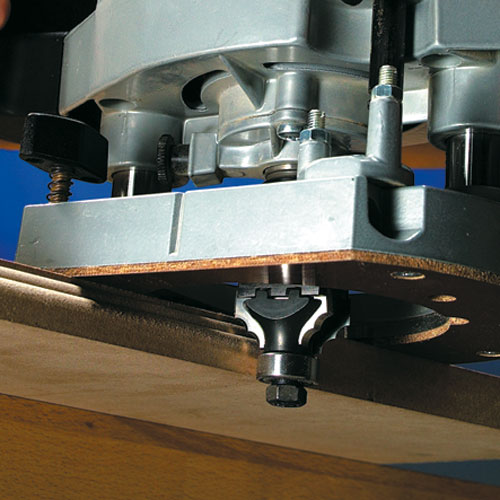

A cutter with a guide bearing or pin which rides against the edge of a workpiece or pattern to limit its horizontal depth of cut. A bearing guide can be mounted on the end of a cutter or on the shank.
Shank
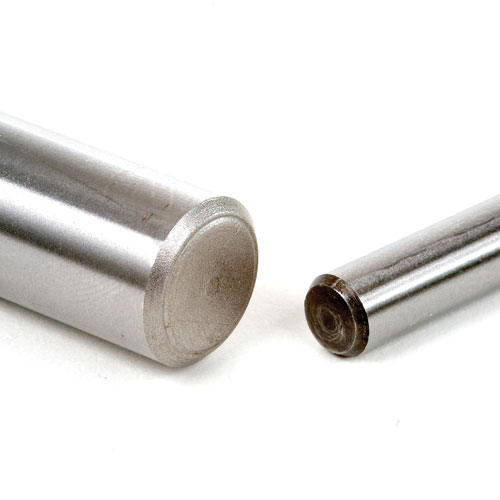

The rounded shank of a cutter clamped into the router and held there by the collet.
Shoulder Cut
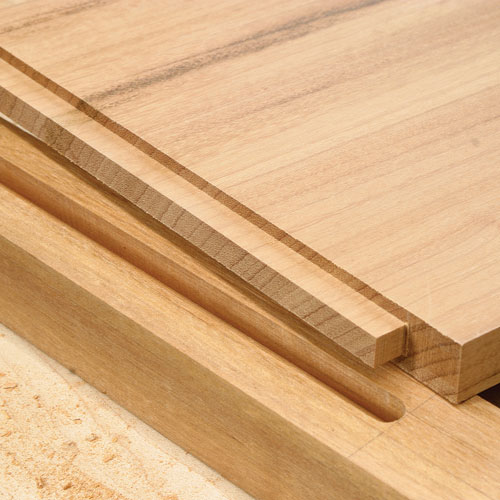

The cross-grain cut made on a joint like a tenon or lap joint.
Ski Supports
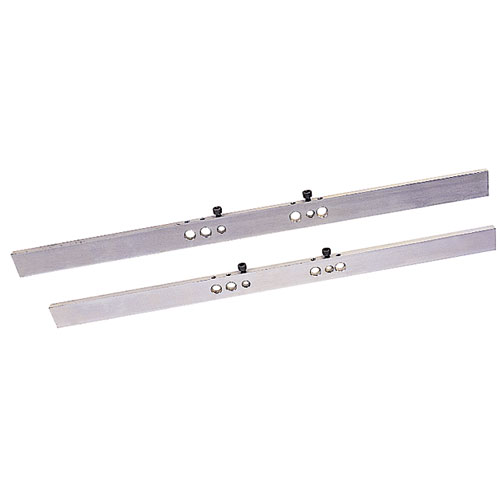

Supports that are attached to the router base used to control the router over small or uneven surfaced work-pieces.
Slotter
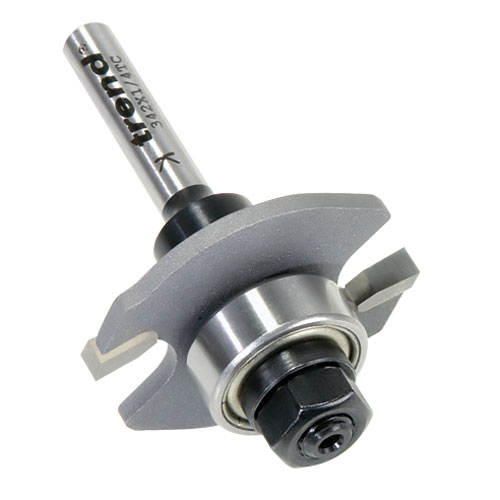

A cutter designed to produce slots in timber. Often used with a bearing guide.
Snatching
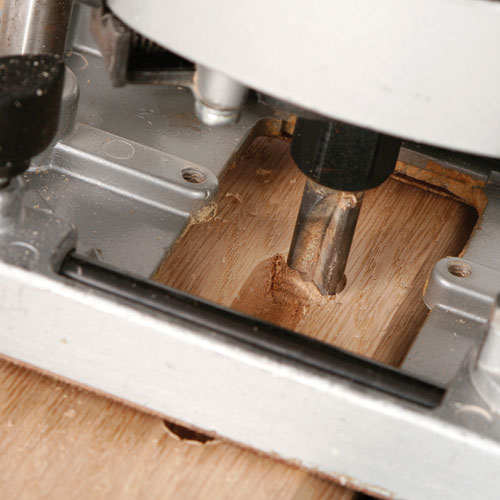

When the revolving cutter picks up the work and tries to throw it off sideways, caused by touching the work whilst the cutter is revolving too slowly.
Softwood
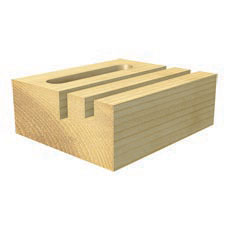

A term used to describe the physical hardness of various woods with low-to-medium impact resistance. Also woods from coniferous or needle-leaved trees.
Sole Plate
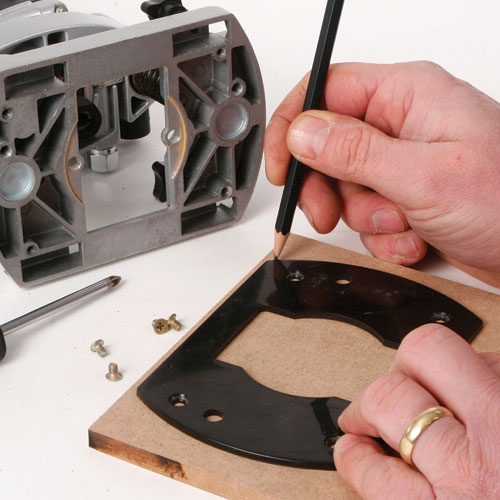

Removeable wearing surface covering the base of the router. Also a timber sleeper in which a timber construction is built onto.
Spelch Block


A waste batten clamped onto a workholder that is cut into to prevent break-out at the end of a cut. Also known as a sacrificial support strip or sacrificial piece.
Spelching
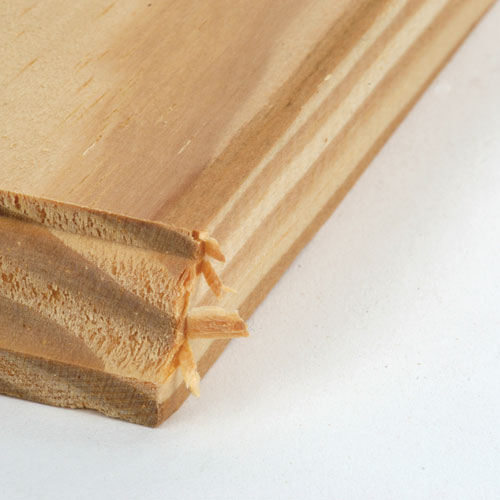

Damage at the end of a cut where the unsupported grain breaks away.
Spike
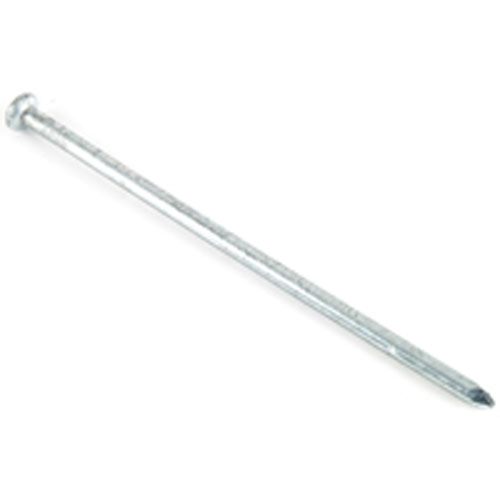

A large nail, usually more than 4Ó (102mm) long.
Spindle
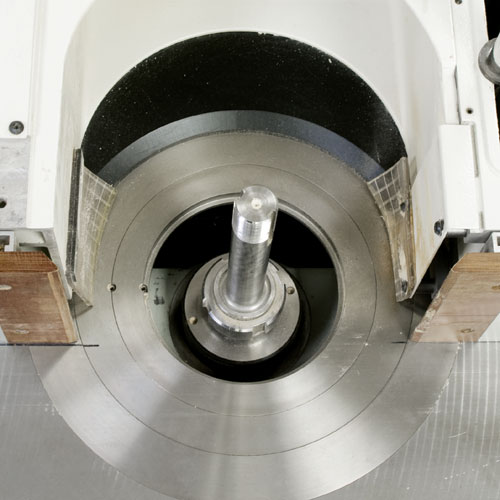

Main shaft of the router or spindle moulder with the collet on the end.
Spindle Lock
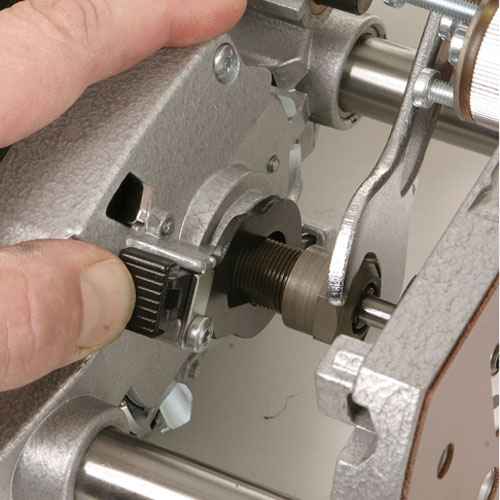

A device on the router shaft or collet that prevents rotation while installing or changing cutters. It enables one spanner only to engage this collet nut, when changing the tool.
Spiral Cutter
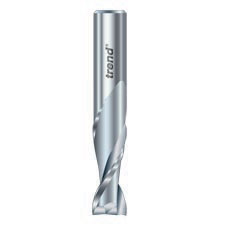

A special type of router cutter with helical or spiral cutting edges and grooves (flutes). Available with left hand fluting or right hand fluting to help raise chips out of the work.
Staff Bead
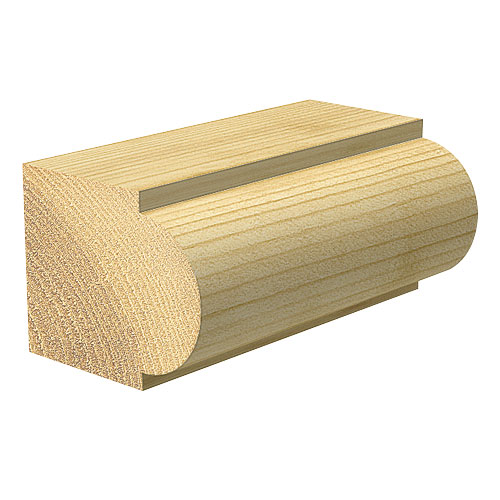

A return bead with a quirk at each side. Refers also to the beaded strip which holds a sash window in place.
Stiles
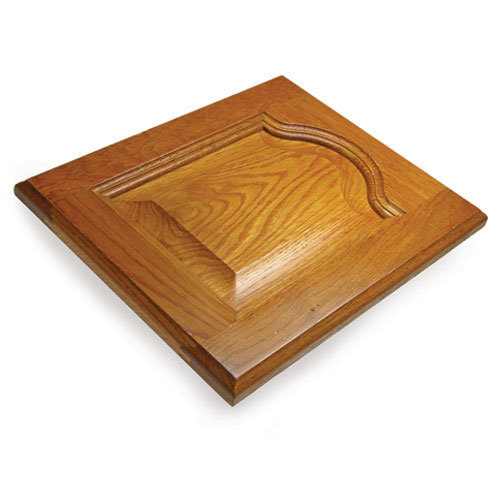

The outer vertical members of a door or window.
Stopped Housing
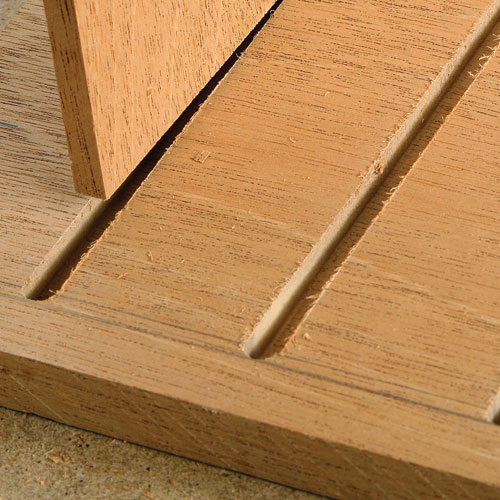

A housing that does not run across the full width of a panel or workpiece.
Straight-edge Guide
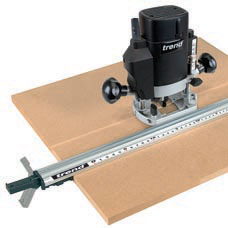

An accessory for guiding routers, circular saws and jigsaws in a continuous straight line.
String
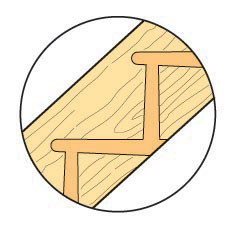

One of the inclined members of a stair case into which the treads and risers are fitted.
Stringings
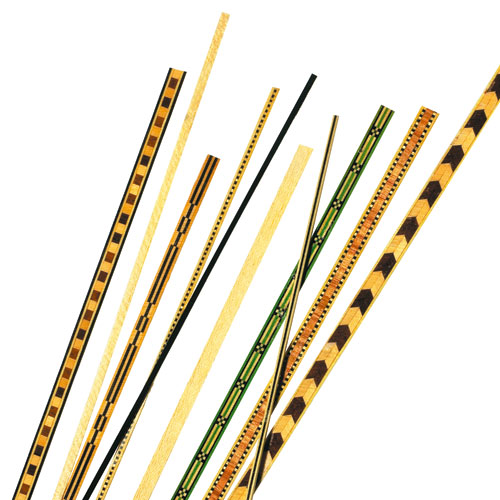

Fine decorative inlays in the form of fine lines.
Stub-tenon
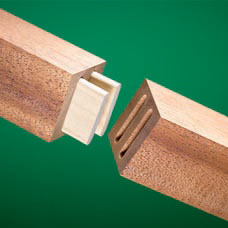

A small tenon which does not go completely through the timber.
Sub-base
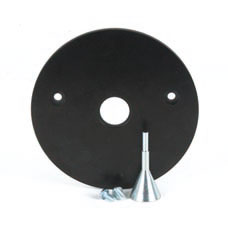

A secondary additional base fitted under the base of the router. This may be introduced to increase bearing surface, or provide a means of guiding the router in various ways.
T-halving Joint
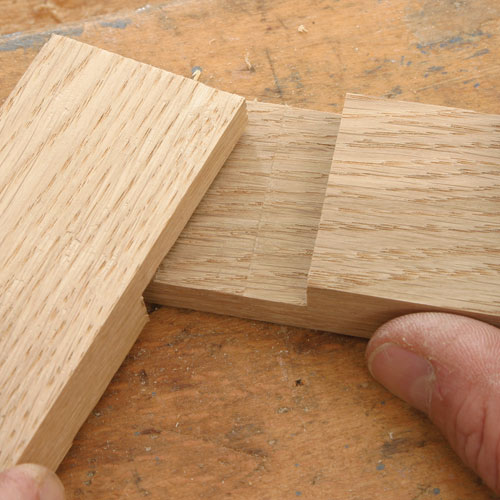

A joint where one member crosses the middle of another at right angles, material being removed from both pieces such that the surfaces finish flush.
TCT
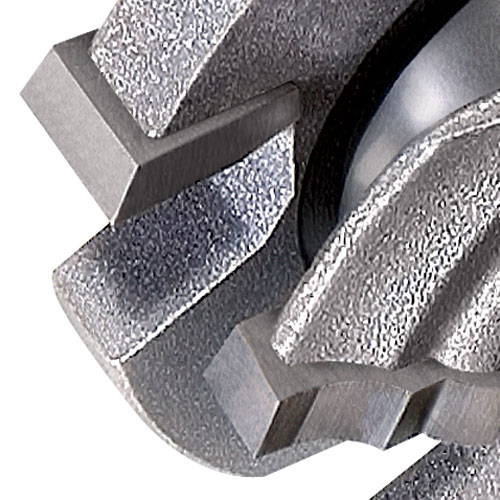

Tungsten Carbide Tip or Tipped. These are cutting faces on routing or enginerring tools normally brazed onto a tool body. Harder wearing than traditional WS or HSS tools. For woodworking use they are deal for man-made boards.
Template
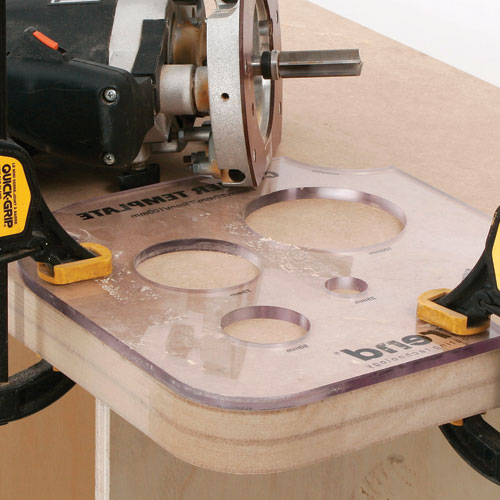

Predetermined shape that acts as a guide for forming shapes using a router with either a guide bush or roller bearing.
Template-following Guide
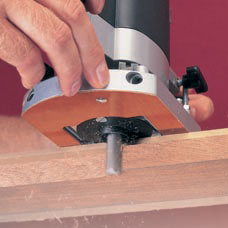

Either a roller bearing or circular guide bush used to guide the router around a predetermined shape or pattern.
Tenon
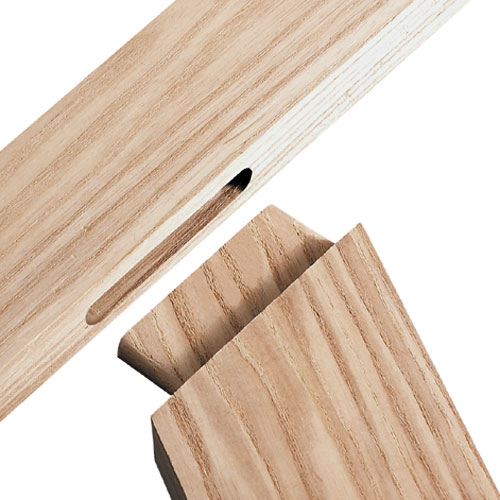

Male part of joint, often rectangular but varies, traditionally width of the tenon was a third of work piece. Tenon length equals mortise depth, tenon width equals mortise length and tenon thickness equals mortise width.
Through Dovetails
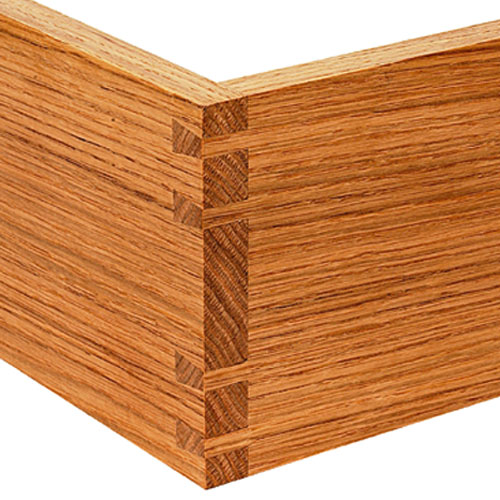

A right angled joint where the pins and tails of the joint are exposed on both faces.
Through Housing
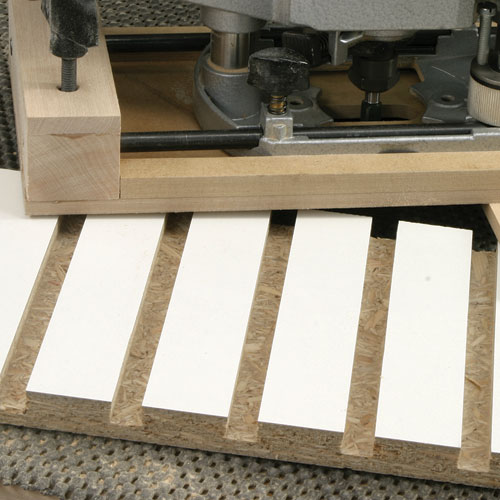

A slot across the width of a workpiece to receive, for example, a shelf.
Tongue and Groove Joint
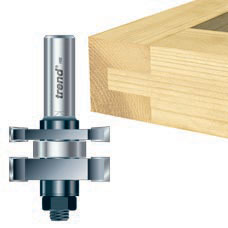

A conventional means of jointing in wood flooring and panelling. Male and female form interlocking joint along edges.
Torus
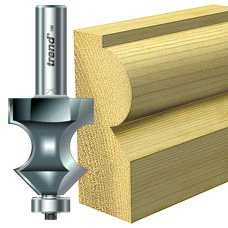

A convex moulding of approximately semi-circular section, generally used on skirting and architrave.
Trench
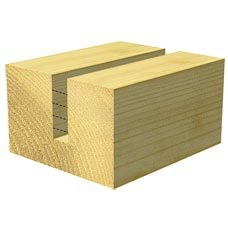

A channel or housing across the grain. Also can be called a 'dado' .
Tufnol™
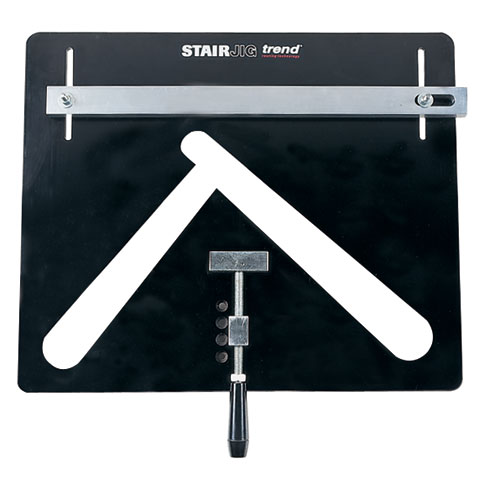

A man-made plastic type material ideal for template making.
Tungsten Carbide


This is a metal found in a number of minerals, but chiefly in wolframite. In colloidal form it is used in the filaments of lamps. As tungsten carbide it is used in a wide variety of cutting tools to give them long cutting life.
